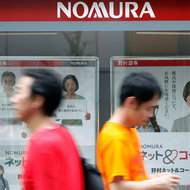TAIPEI — In the China smartphone market, Apple has seen better days.
Despite having reported record sales of the iPhone 5, the U.S. technology giant’s presence on the mainland flagged in 2012; it was pushed out of the top five smartphone makers in that market during the third quarter, with just 8 percent of the market, according to the research firm Canalys.
As Coolpad, Huawei, Lenovo, Samsung and ZTE surged ahead of Apple, a major force behind their success was MediaTek, a Taiwanese chip maker whose products have drastically reduced the cost for manufacturers of getting new phones to market.
The company entered the smartphone business late, introducing its first chipset in 2011 inside a Lenovo phone. But within a year and a half, analysts say, MediaTek has taken 50 percent of China’s market for smartphone chips.
That success has come with the adoption of what MediaTek calls a “turnkey solution.” Rather than simply provide a chip, the company also offers instructions on how to build a phone, the software architecture to run it and dedicated consultants to advise phone makers through the production process. MediaTek’s chief financial officer, David Ku, describes this as a franchise model in which all the clients have to do is “turn on the burner.”
Peter Liao, an analyst at Nomura Securities who covers the industry, said MediaTek saved phone makers the often prohibitive cost of research and development.
“It typically takes a lot of money and time to develop a new handset model, but MediaTek comes in and provides a total solution,” Mr. Liao said.
The company has proved wildly popular among Chinese phone makers. Besides supplying Huawei, Lenovo and ZTE, MediaTek also supports lesser-known manufacturers, including those that make so-called bandit phones that imitate premium models from Apple, Samsung and HTC.
TCL Communication Technology Holdings, a Chinese phone maker that sells phones primarily in Europe and Latin America, uses MediaTek’s chips. Its chief operating officer, Wang Jiyang, said that when his company works with MediaTek, its only major design tasks are to make the software more user-friendly and to tailor the look and feel of the phone.
“In general, with MediaTek’s help, we’re able to achieve almost twice as fast time to market, compared to other solutions,” Mr. Wang said.
MediaTek was founded in 1997. It started out making chips for home entertainment electronics like DVD players and televisions before moving into components for CD and DVD-ROM devices. In 2004, it began making chips for small mobile phones.
MediaTek estimates that it will lead the Chinese market by selling 110 million smartphone chips in 2012, up from 10 million chips a year ago.
By comparison, Qualcomm, the global leader in smartphone chips, is expected to finish 2012 in second place in China with 82 million chips shipped, according to the research firm DigiTimes.
MediaTek has been powered by consumers like Zhang Ying, 31, who want to try the latest technology but not pay a premium for it. Mr. Zhang, a Shanghai resident, bought a knockoff HTC phone last year. “Every person has a price point,” he said. “At a time when some of my friends were buying Samsung or iPhone, I wanted to show that I can keep up with them. A lot of domestic phones are cheap and of fairly good quality.”
People who think like Mr. Zhang are dominating sales, especially among first-time smartphone buyers. In a September report, McKinsey, the global consulting firm, estimated that 69 percent of all smartphones sold in China would cost less than 1,500 renminbi, or about $240, by the second half of 2013.
And MediaTek is taking its business model to other emerging markets. The company’s products support features that are popular in developing countries, like noise-reducing speakers and slots for two SIM cards.
In India, local brands like Spice and Micromax are rolling out lower-priced smartphone models using MediaTek parts. In Brazil, phones by Motorola Mobility, as well as local brands like Gradiente and Multilaser, will also have MediaTek chips.
Article source: http://www.nytimes.com/2013/01/07/technology/07iht-mediatek07.html?partner=rss&emc=rss

